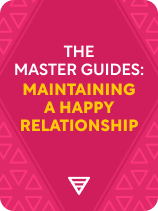

This article is an excerpt from the Shortform book guide to "The Master Guides: Maintaining a Happy Relationship" by Shortform. Shortform has the world's best summaries and analyses of books you should be reading.
Like this article? Sign up for a free trial here.
What are the primary attachment styles? How can insecure attachment in relationships be managed?
One essential element of maintaining a happy relationship is to understand both your needs and your partner’s. Specifically, relationship experts recommend understanding your attachment styles and using strategies to maintain secure attachment and negate the effects of insecure attachment.
Continue reading to learn about attachment styles in romantic relationships and ways to move toward relationship health.
Understand Your Attachment Styles
In Attached, psychiatrist Amir Levine and psychologist Rachel Heller contend that the best way to create a relationship that fulfills your emotional needs is to understand both your own and your partner’s attachment styles—the beliefs and behaviors that determine how you function in intimate relationships. If you know your own attachment style, you’ll better understand what you need in a romantic relationship. If you can decipher your partner’s attachment style, you’ll understand what lies at the root of your conflicts—and how you can resolve them.
There are three main attachment styles in romantic relationships: secure, anxious, and avoidant.
- Secure attachers are nurturing, responsive, and comfortable with intimacy.
- Anxious attachers are preoccupied with making their relationship solid and constantly seek reassurance from their partner.
- Avoidant attachers are more distant and see intimacy as a threat to their independence.
Anxious and avoidant attachers are collectively known as insecure attachers. Below, we’ll discuss strategies to manage insecure attachment in relationships.
If you’re a secure attacher, your major relationship goal is to maintain your secure attachment style. Levine and Heller explain that, as a secure attacher, you’re good at recognizing cues that indicate compatibility, so you tend not to get trapped in negative relationships. But, since you tend to forgive easily, you may let negative behaviors repeatedly slide and stay in a relationship longer than you should—which can shift your attachment style.
What Insecure Attachers Should Do
If you’re an anxious attacher, accepting your romantic needs is critical to developing a happy relationship. Levine and Heller explain that many anxious attachers try to ignore their needs for intimacy and reassurance because they’re ashamed of them. But if you don’t accept these needs, you won’t express them and give your partner the opportunity to fulfill them.
If you’re an avoidant attacher, developing a happy relationship depends on recognizing and combating the techniques you use to maintain emotional distance from your partner.
One strategy Levine and Heller recommend is to second-guess your negative thoughts about your partner: Is it really a problem, or are you trying to push your partner away?
Similarly, in How to Not Die Alone, dating coach Logan Ury recommends that insecure attachers practice managing their knee-jerk reactions in pursuit of happiness. Instead of panicking, anxious attachers should learn productive ways to soothe their nerves when their partners don’t provide immediate reassurance. Instead of withdrawing, avoidant attachers should learn to communicate when they want emotional distance.

———End of Preview———
Like what you just read? Read the rest of the world's best book summary and analysis of Shortform's "The Master Guides: Maintaining a Happy Relationship" at Shortform.
Here's what you'll find in our full The Master Guides: Maintaining a Happy Relationship summary:
- Advice from top relationship experts on how to maintain a happy relationship
- How to sustain both emotional and physical intimacy
- How to handle conflict so it doesn't ruin your relationship






